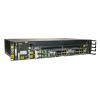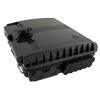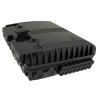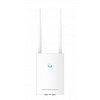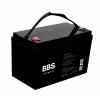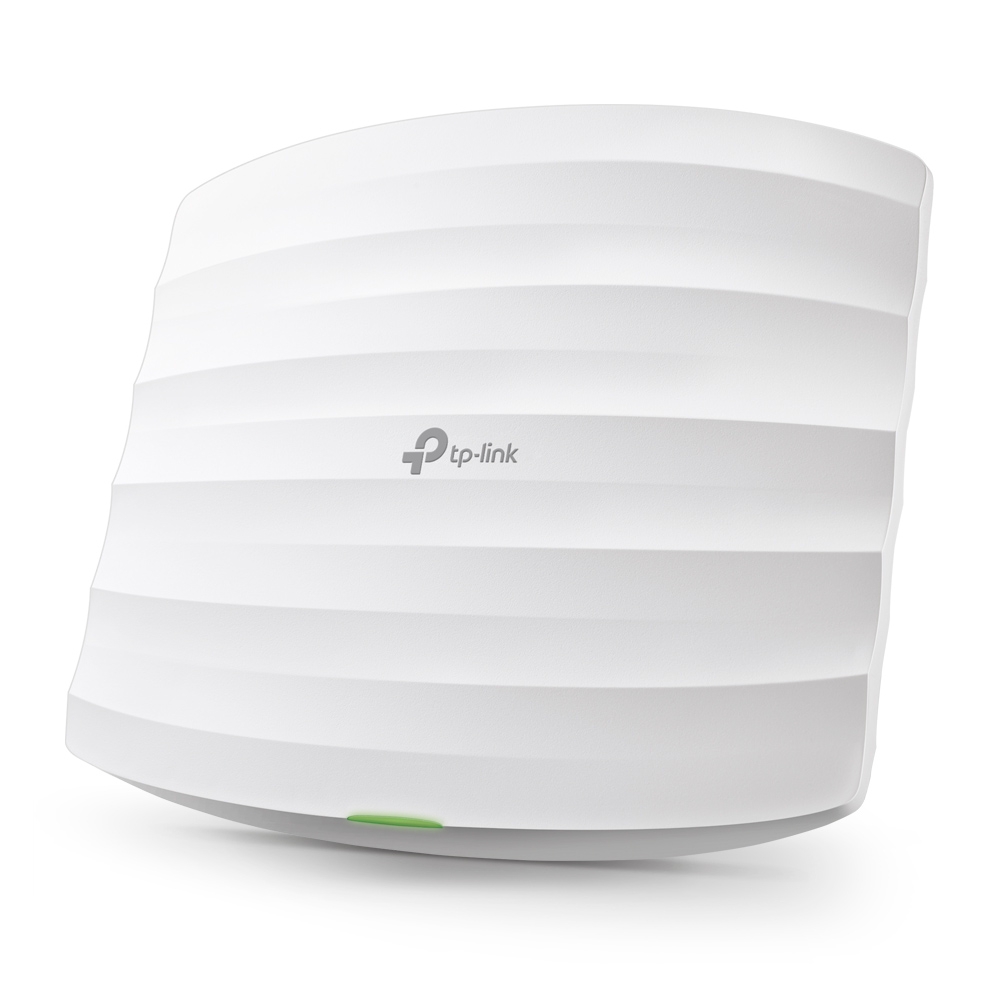-
zł
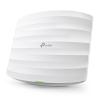
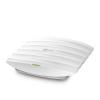
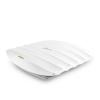
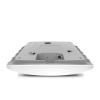
TP-Link EAP223 is an access point designed to operate under the control of the Omada system. It can transmit wireless networks according to the Wi-Fi 5 standard, utilizing IEEE 802.11 b/g/n in the 2.4 GHz band and IEEE 802.11 a/n/ac in the 5 GHz band. The maximum theoretical throughput is 450 Mbps in the 2.4 GHz band and 867 Mbps in the 5 GHz band. EAP223 can be managed through the Omada system, which allows for centralized management of multiple devices, including access points, switches, and routers. The product offers 1 gigabit Ethernet port, which also serves as a PoE (802.3af / passive 24 V) power input. The access point can be mounted on the wall or ceiling, and an appropriate bracket is included in the package.
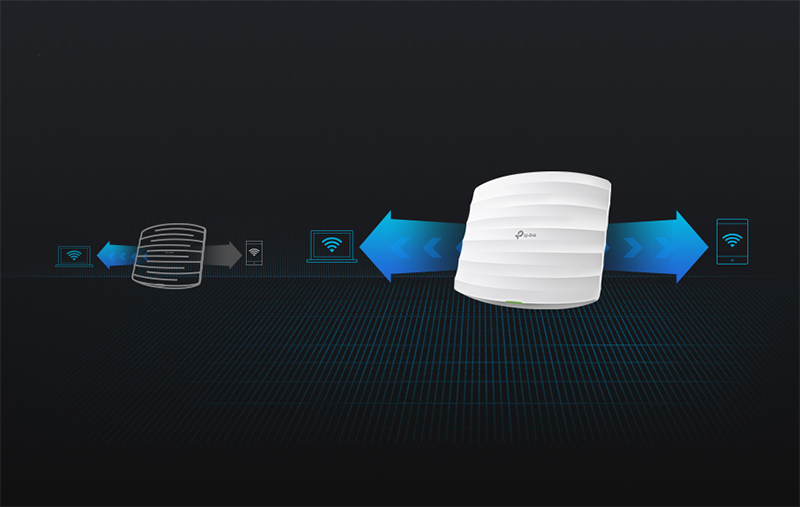
Wi-Fi 5 AC1350 network, MU-MIMO
The access point can transmit wireless networks according to the Wi-Fi 5 standard, utilizing IEEE 802.11 b/g/n in the 2.4 GHz band and IEEE 802.11 a/n/ac in the 5 GHz band. The maximum theoretical throughput is 450 Mbps in the 2.4 GHz band and 867 Mbps in the 5 GHz band.
The device utilizes the 802.11ac Wave 2 protocol, supporting MU-MIMO technology. It can simultaneously transmit and receive data from multiple users, which mitigates data queuing and positively impacts network performance, especially with a high number of users.
Omada platform
TP-Link EAP223 is compatible with the Omada system. This platform enables centralized management of multiple devices, including access points, switches, and routers. It simplifies maintenance of large networks and significantly saves administrator time. A hotspot created using the Omada system allows for Wi-Fi coverage over very large areas, enables user access management, ensures reliability, and provides robust security. You can manage the system using a hardware controller, controller software available on PC, or a cloud controller.


SMS authentication
The Omada system allows you to create a Captive Portal, which serves to authenticate users connecting to the network. You have various authentication options, including vouchers, login (username and password), or RADIUS authentication.
A very useful feature is authentication via SMS. If you use this method, the user will receive a special verification code on the provided phone number. After receiving the code, they can connect to the wireless network.
Power over Ethernet, gigabit Ethernet port
The offered product features 1 gigabit Ethernet port (10/100/1000 Mb/s), which serves simultaneously as a Power over Ethernet (PoE) input. It supports IEEE 802.3af PoE standard or passive PoE with a 24 V DC voltage. There is no power adapter included in the package, so it must be purchased separately or you can use a PoE-enabled switch. The maximum power consumption is 13.6 W. The use of PoE allows for the reduction of wiring and equipment used in the network. Both power and data are delivered through the Ethernet cable, so if you use the appropriate switch, you don't need to use additional power adapters.

Management via the Omada App
You can also use the Omada mobile app available on Android/iOS devices for configuration. In a few simple steps, it will guide you through the initial setup and facilitate the first network launch. Subsequently, it will provide access to the current status of operation, management of the already configured installation, and network monitoring.

Specifications
| TP-Link EAP233 | |
| Hardware | |
|---|---|
| Interface |
1 gigabit Ethernet port 10/100/1000 Mb/s |
| Physical Security Lock | Yes |
| Button | Reset |
| Power Supply |
802.3af PoE PoE Adapter IS NOT Included |
| Power Consumption | 12,6 W |
| Dimensions ( W x D x H ) | 205.5 × 181.5 × 37.1 mm (8.1 × 7.1 × 1.5 in) |
| Antenna Type | 3 Internal Omni 2.4 GHz: 4 dBi 5 GHz: 5 dBi |
| Mounting | Ceiling /Wall Mounting (Kits included) |
| Wireless features | |
| Concurrent Clients | 220 |
| Wireless Standards |
Wi-Fi 5
2,4 GHz: IEEE 802.11 b/g/n 5 GHz: IEEE 802.11 a/n/ac |
| Frequency | 2.4 GHz and 5 GHz |
| Signal Rate |
2,4 GHz: 450 Mb/s 5 GHz: 867 Mb/s |
| Wireless Functions | Multiple SSIDs (Up to 16 SSIDs, 8 for each band) Enable/Disable Wireless Radio Automatic Channel Assignment Transmit Power Control (Adjust Transmit Power on dBm) QoS(WMM) Seamless Roaming Omada Mesh Band Steering Load Balance MU-MIMO Airtime Fairness Beamforming Rate Limit Reboot Schedule Wireless Schedule Wireless Statistics based on SSID/AP/Client |
| Wireless Security | Captive Portal Authentication Access Control Wireless Mac Address Filtering Wireless Isolation Between Clients SSID to VLAN Mapping Rogue AP Detection 802.1X Support |
| Transmission Power |
< 20 dBm (2,4 GHz) < 23 dBm (5 GHz) |
| Management | |
| Omada App | Yes |
| Centralized Management | Omada Hardware Controller OC300 Omada Hardware Controller OC200 Omada Software Controller Omada Cloud-Based Controller |
| Cloud Access | Yes, through - OC300 - OC200 - Omada Software Controller - Omada Cloud-Based Controller |
| Email Alerts | Yes |
| LED ON/OFF Control | Yes |
| Management MAC Access Control | Yes |
| SNMP | v1, v2c |
| System Logging Local/Remote Syslog | Local/Remote Syslog |
| SSH | Yes |
| Web-based Management | HTTP / HTTPS |
| L3 Management | Yes |
| Multi-site Management | Yes |
| Management VLAN | Yes |
| Zero-Touch Provisioning | Yes. Requiring the use of Omada Cloud-Based Controller |
| Others | |
| Package Contents | AC1350 Wireless MU-MIMO Gigabit Ceiling Mount Access Point EAP223 Mounting Kits Installation Guide |
| System Requirements | Microsoft Windows XP, Vista, Windows 7, Windows 8, Windows10, Windows11, Linux |
| Operating Temperature | 0–40 ℃ (32–104 ℉) |
| Storage Temperature | -40–70 ℃ (-40–158 ℉) |
| Operating Humidity | 10–90% RH non-condensing |
| Storage Humidity | 5–90% RH non-condensing |






 Polski
Polski English
English Italiano
Italiano Español
Español Čeština
Čeština Српски
Српски Deutsch
Deutsch Ελληνικά
Ελληνικά Slovenský
Slovenský

